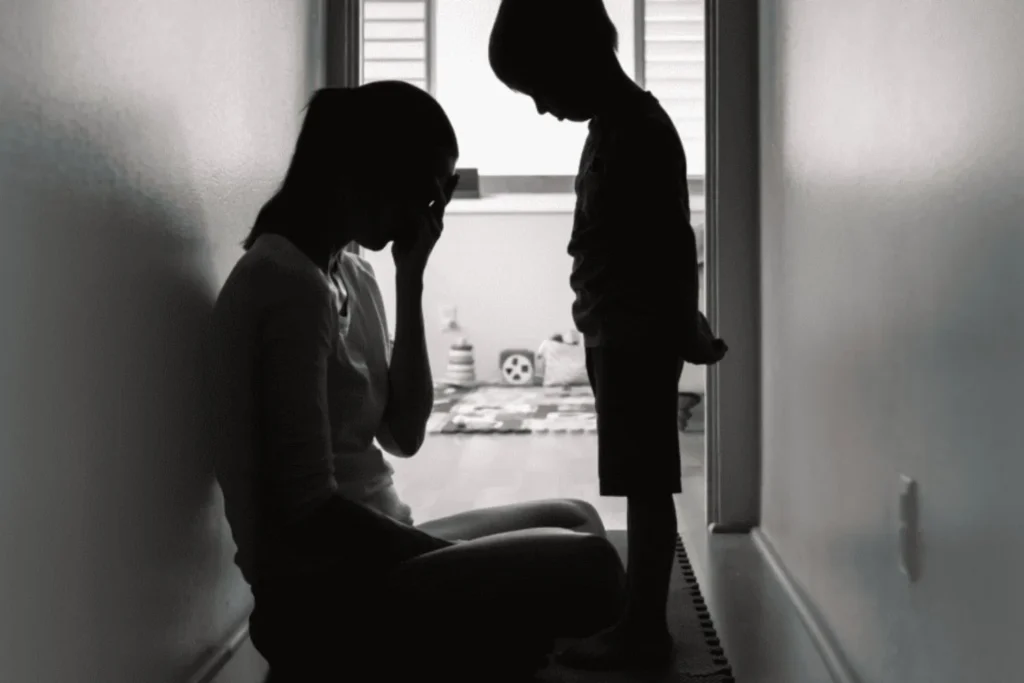
What Does the Bible Say About Suicide?
Suicide is the second leading cause of death for people under the age of 24. The sad news is that you or someone you know will likely be impacted by

If you know a boy or girl who has dealt with a father’s death, whether recently or some time ago, don’t be afraid to step up and help out.
Estimated reading time: 9 minutes
At 13 months old, I received my membership card into what my friend Tim calls “The Dead Dads Club.”
Tim has cultivated a morbid sense of humor.
We’re a bigger club than you might think. A parent’s death has left 1.5 million American children living in single-parent households.
I was one of them.
We’re still accepting new members in our club although very few kids get excited about sending us their applications. I don’t blame them. Membership in our club offers limited perks.
In fact, 79 percent of adults who lost a parent as a kid said when they became a parent themselves, they missed having the guidance of their parent who died. And 80 percent said their parent’s death was the hardest thing they’d had to go through in life.
Fathers tend to die before mothers, so most kids who’ve experienced a parent’s death have lost their dads.
When I joined the Dead Dads Club, few adults knew how to talk about death with a child.
Lose a pet? Your teacher or neighbor might know what to say.
Lose a dad? You’re on your own, kid.
When the subject came up, most adults fled to the next topic of conversation. Society doesn’t offer etiquette lessons for relating to children who’ve buried their fathers. You can’t blame folks for their reactions.
But these kids need warm, confident, and empathetic adults to take an interest in them.
If you know a boy or girl who has dealt with a father’s death, whether recently or some time ago, don’t be afraid to step up and help out. Consider these tips to help you reach out.
Some people believe talking about a parent who has died will be uncomfortable or unpleasant for a child or teen. Nothing could be further from the truth!
Elaine is helping raise her grandson after his dad passed away. “Many people will talk at the time of the death,” she told me, “but it’s too much information all at once. You have to continue telling the stories through the years.”
In Deuteronomy 32:7, the Bible instructs children to ask their fathers to tell them the stories of the past — what God did for people who came before them. Kids who don’t have a dad need someone else to tell them those stories.
As Elaine said, “Children need to hear good things, concrete memories, and be reminded of the personality quirks and blessings of the person they lost.” Often, the father’s family is the greatest source of these stories.
It’s okay to tell stories about your own dad. Children who have lost their dads often like to hear about what it’s like to have a man around the place. Besides, how will we learn how to be great dads ourselves one day unless we hear the stories of men who are excelling in fatherhood?
Some widowed moms skip church on Father’s Day. It’s easier than watching their children sit through the discomfort of coloring a card for a dad they don’t have. It isn’t fun to watch as men all around the church stand up for recognition while your seats are conspicuously empty.
Increasingly, churches are growing more sensitive to the fact that not all kids have dads. If you’re planning a Father’s Day celebration for your church or student ministry, keep in mind that some kids in your group may have buried their dads. Don’t force them to participate in your planned activities if they aren’t comfortable doing so.
In 2 Corinthians 1:3-4, the Bible instructs us to offer God’s comfort to others. You could also invite a family experiencing a father’s death to join you and your family for lunch that day. You don’t have to celebrate Father’s Day or even mention it. Provide the kids a distraction from their loss for an hour or two.
When Sallie was 11 years old, her father passed away. “After my dad died, I lost touch with his side of the family. Though I’ve reconnected with them, it’s not the same as if that relationship had been nurtured through the years.”
A single mom today, Sallie is going out of her way to ensure her three boys maintain a connection to their dad’s relatives. If you’re a family member of the man who died, an occasional text, card, email, or social media message can mean a lot. For those who live nearby, visits and outings are terrific options.
For some families, staying in touch with a deceased parent’s relatives won’t be possible, and for others, it won’t be advisable. But as much as you can, help children experiencing a father’s death stay in contact with their relatives and family members.
You can be a positive male role model for boys and girls whose dads have died. And you need to.
Unless they have an engaged dad, most children interact almost exclusively with women. Nearly all their mom’s friends are women, and it’s usually women who volunteer in children’s ministry.
Yet, children without a positive male role model are more likely to engage in criminal activity, premarital sex, and other unhealthy behaviors. We often think these negative actions stem from abandonment. In fact, these behaviors are linked to a father’s absence regardless of how that absence came to be.
Have you reached out to a widowed mom with an offer to help but gotten pushed back?
Sometimes, moms get nervous about letting their children interact with men in a familiar way. Some widows feel like no man could ever measure up to their kids’ dads. Others don’t want to be a burden.
These fears have merit, but don’t let them stop you. Consider non-threatening activities with the child. You could go over to their house and do a project for the mom. Ask the child to help you while you’re there. If you’re working with a teen who has lost his dad, maybe you could ride shotgun for driving practice. Finally, you can find online resources to help you be an effective mentor.
Children do not sit with their emotions for a long time. A child or teenager with a father’s death may sob over their loss one minute and shout in a game the next. That’s normal. Children also tend to be less verbal about their grief than adults. Just because a child or teen doesn’t talk about losing their father doesn’t mean they aren’t thinking about it.
Childhood loss and grief moves in cycles. People who navigated a father’s death as children report experiencing their grief at multiple key points during their life. Life markers such as turning 10, becoming a teenager, driving a car, graduating from high school, or even winning a coveted award can trigger fresh feelings of grief and loss in children. The correlation between major life events and missing a deceased father will probably continue throughout the child’s life.
No one likes death. And it’s easy to worry you’ll say or do something to make the situation worse. But avoiding a child whose dad has passed away is never a good solution. While you don’t want to trample anyone’s boundaries, don’t make it easy for a fatherless child to isolate themselves from the world of men.
If God has a heart for children experiencing a father’s death (and Psalm 10:17-18 assures us that He does), then as God’s family members, we have been called to compassion, too. So, show up, fellows.
Relationships take time and trust. Even if you are a family member or close friend, a child may not confide something as treasured and intimate as his grief. That’s okay. Be there. With patience and time, you can make progress.
On that same note, remember that if you’re mentoring a child, or just spending some time with one, you aren’t trying to replace his or her dad. You can’t. Do things with them, listen to them, and show them the ropes of manhood.
“At least your dad just died,” my friend Lee’s mom often reminded him. “Lots of dads abandon their kids, and that’s worse than dying. If you think about it, you’re lucky your dad died instead of leaving you.”
I’ve heard a few “at least” expressions myself over the years:
At least, I didn’t clock anyone who said them to me.
“At least” is designed to make the speaker — not the hearer — feel better. It minimizes loss, muzzles grief, and delays healing. God instructs us not to treat deep hurts as if they were only superficial. In Jeremiah 6:14, He says about false prophets, “They dress the wound of my people as though it were not serious.”
This one is popular in church circles. After all Jesus repeatedly called God “Father,” and we use that language in prayer. Also, Psalm 68:5 explicitly says that God will be “a father to the fatherless.”
So, what’s wrong with saying it to a kid experiencing a father’s death?
A relationship with God doesn’t replace your relationship with your dad. It’s not spiritual to pretend that it does.
Kids want real dads — the kind that play games, help with homework, laugh, talk, and hug. Often, divine fatherhood shoots way over the heads of most kids. As Vance Fry puts it, “I knew better. A real father was in a home — not on a throne.”
God is often a father to fatherless children through the hands, hearts, and voices of His people. Men like you and me get to share in making His fatherhood a reality for kids with a father’s death. It’s better than a membership card in the Dead Dads Club.